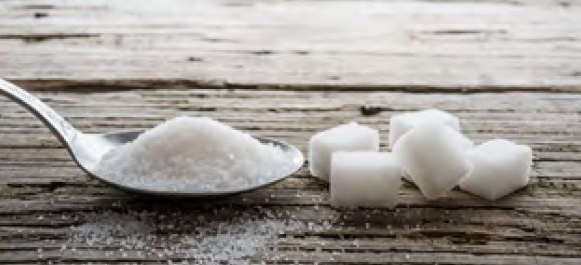Cheree Sheldon, Nutritionist provides some information about how much sugar we should aim to have in our diet:
The current World Health Organisation (WHO) recommendations that were released in 2015 state that everyone should reduce their “free sugar” (i.e. simple, added sugars) intake to less than 10% of their total energy intake, but a further reduction to below 5% would provide further health benefits.
Sticking to the WHO recommendations means limiting your intake to approximately 6 teaspoons per day of “free sugars”. Remember that there are natural sugars in many foods but it’s the added ones you should be looking out for. If a recipe has 20g sugar in it but is made with fresh fruit, vegetables, proteins and dairy then the sugar is ok.

Are Some Sugars Better Than Others?
Let’s start with the sugars you should avoid and why:
The why is simple – they break down too rapidly in the body, causing an excess of blood glucose putting you at risk of developing all of those nasty lifestyle diseases associated with excess sugar: obesity, type 2 diabetes, hypoglycemia, metabolic syndrome, etc…
The short term reason is excess glucose gets stored as FAT! So the sugars that simply MUST be avoided are straight processed sucrose, or table sugar; any processed product that has glucose, sucrose, or fructose as an ingredient, high fructose corn syrup, and invert sugar.
Other sugars must be considered on their merits. Where do they sit on the Glycaemic Index? The lower the better. What other things are they bringing to your day? For example, molasses will also supply you with some iron, coconut sugar is high in electrolytes, and Yacon syrup is good for your gut health as it is a prebiotic.
Other things that will affect our decision on sugars are their use. If you are using sugar in your tea or coffee than stevia or xylitol are better options, if you are using sugar in baking, than any of the syrups will work, or a crystalline substitute like coconut sugar or agave sugar will work depending on the recipe.
Reduce the amounts you are putting into your cooking and train your body to get used to smaller amounts of sweetness. Your taste buds will adapt and sweet foods that you once ate like no tomorrow, will be sickly to your newly adapted tastes!!
Cheree Sheldon, Nutritionist

